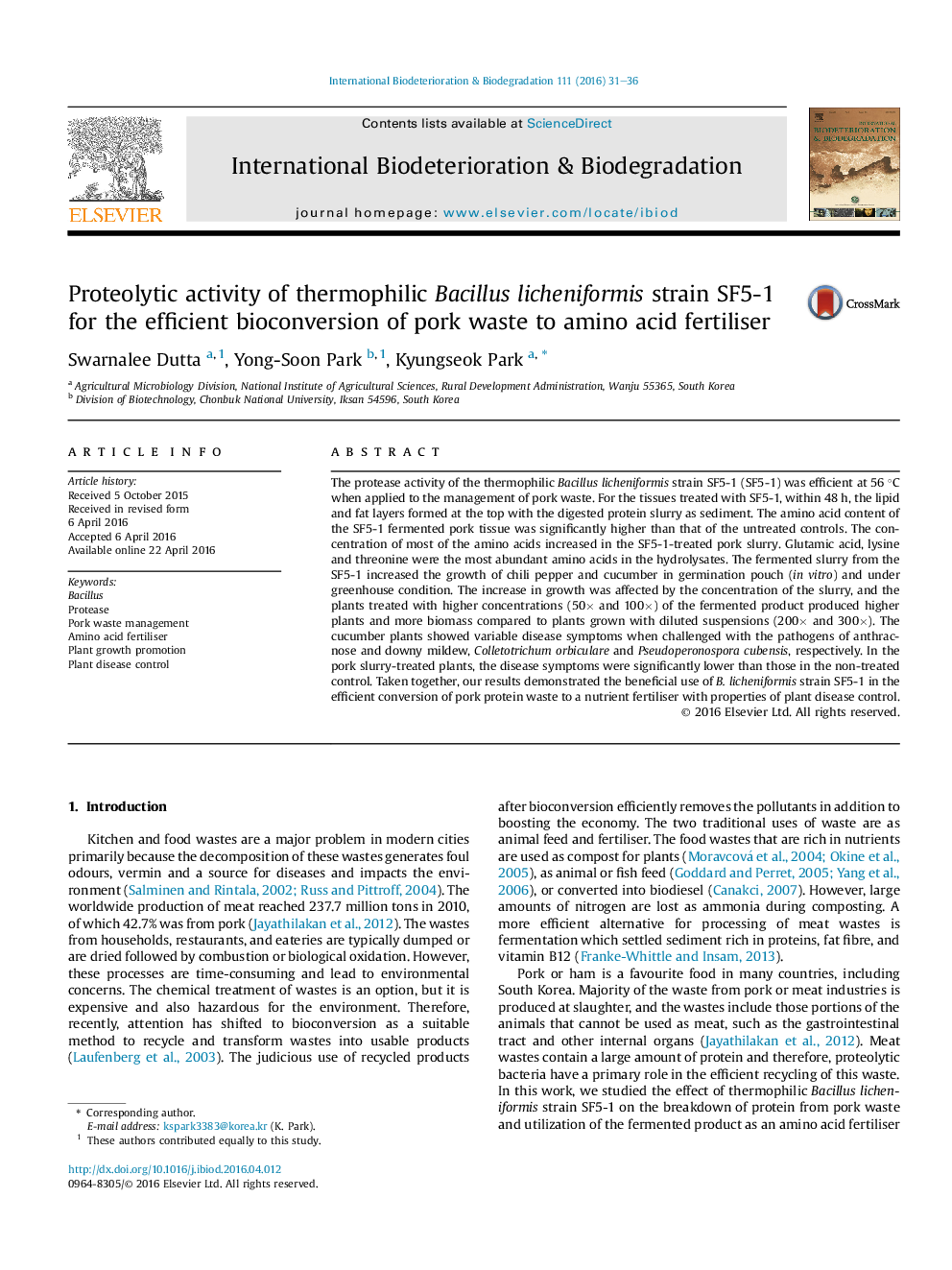| Article ID | Journal | Published Year | Pages | File Type |
|---|---|---|---|---|
| 4364241 | International Biodeterioration & Biodegradation | 2016 | 6 Pages |
•Thermophilic Bacillus licheniformis strain SF5-1 from domestic soybean paste secreted proteases at high temperature (56 °C).•The proteolytic activity was applied in the bioconversion or digestion of proteins from pork wastes.•The fermentation with SF5-1 was very rapid, and the tissues were digested within 48 h.•The fermented product was rich in amino acids and improved plant growth when applied to chili pepper and cucumber plants.•Treated cucumber plants showed reduced disease symptoms when challenged with the anthracnose and downy mildew pathogens.
The protease activity of the thermophilic Bacillus licheniformis strain SF5-1 (SF5-1) was efficient at 56 °C when applied to the management of pork waste. For the tissues treated with SF5-1, within 48 h, the lipid and fat layers formed at the top with the digested protein slurry as sediment. The amino acid content of the SF5-1 fermented pork tissue was significantly higher than that of the untreated controls. The concentration of most of the amino acids increased in the SF5-1-treated pork slurry. Glutamic acid, lysine and threonine were the most abundant amino acids in the hydrolysates. The fermented slurry from the SF5-1 increased the growth of chili pepper and cucumber in germination pouch (in vitro) and under greenhouse condition. The increase in growth was affected by the concentration of the slurry, and the plants treated with higher concentrations (50× and 100×) of the fermented product produced higher plants and more biomass compared to plants grown with diluted suspensions (200× and 300×). The cucumber plants showed variable disease symptoms when challenged with the pathogens of anthracnose and downy mildew, Colletotrichum orbiculare and Pseudoperonospora cubensis, respectively. In the pork slurry-treated plants, the disease symptoms were significantly lower than those in the non-treated control. Taken together, our results demonstrated the beneficial use of B. licheniformis strain SF5-1 in the efficient conversion of pork protein waste to a nutrient fertiliser with properties of plant disease control.
Graphical abstractFigure optionsDownload full-size imageDownload as PowerPoint slide
